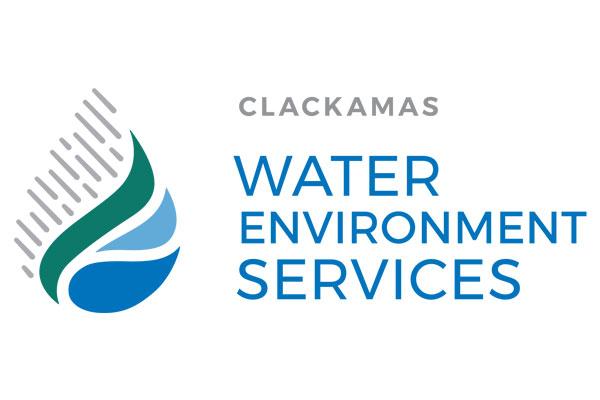Spills and leaks from contaminants, can be dangerous if left unattended. In addition, spilled chemicals can also pollute our streams and underground drinking water supplies, as well as harm pets, plants and wildlife.

Prevention is Key!
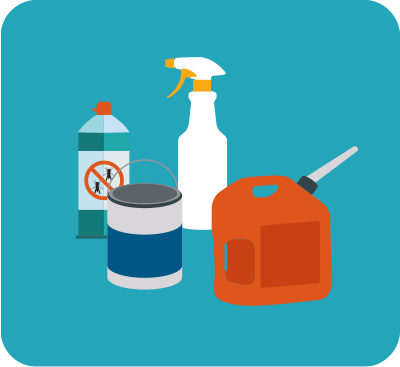 Keep unused containers closed tightly.
Keep unused containers closed tightly.- Store materials inside or under cover.
- Never use storm drains or gutters, ditches, or swales for waste disposal.
- Keep waste container lids closed.
Possible contaminants include:
- Oil
- Gas
- Antifreeze
- Paint
- Pesticides
- Cleaners and disinfectants
- Sewage
- Fertilizers
If someone is actively dumping or spilling a hazardous material — call 911.
Spills Happen!
Your safety is of utmost importance in addressing spills and leaks. Stop work and move upwind immediately if you feel any symptoms (nausea, coughing, stinging eyes, nose or throat, dizziness). Call for help.
Call 911 if the spill is hazardous or an emergency.
If you are aware of the origin of the spill and it is not an emergency:
- Report a spill or leak
- Try to stop the leak if you can safely. Keep people and vehicles away to prevent contact with the spilled substance. Use a drip pan if you spot a leak or drip; repair the leak promptly.
- Turn off any nearby equipment that could ignite a flame or explosion.
- Never hose down a spill — this can send hazardous pollutants to our waters.
- Protect waterways: Place absorbents such as kitty litter and barriers between the spill and any nearby storm drain, ditch or swale. Clean up the spill immediately.
How to Clean up a Small Spill
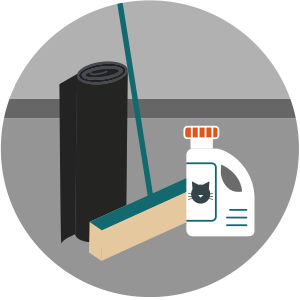
Step 1
Collect cleanup supplies (kitty litter, bag, broom, etc.)
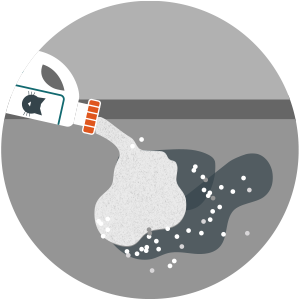
Step 2
Spread the absorbent (the pads, pillows, newspaper, etc.) around the spill starting at the leading edge, from outside to inside.
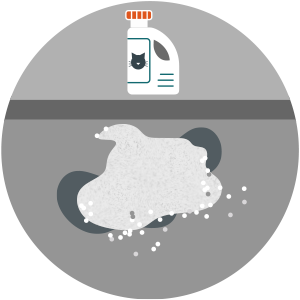
Step 3
Wait for the spill to be absorbed; add more absorbent if needed.
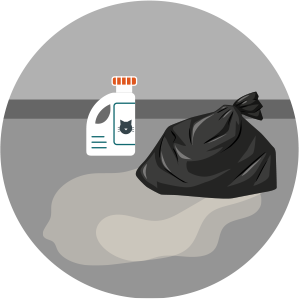
Step 4
Properly dispose of materials. Larger spills might require disposals as household hazardous waste at the local landfill.
Our Partner
 Clackamas Water Environment Services is proud to partner with The Oregon Association of Clean Water Agencies (ACWA) to protect and enhance Oregon’s water quality. ACWA developed the information (provided above) in collaboration with groundwater, stormwater and education experts dedicated to practical and proactive water resources protection.
Clackamas Water Environment Services is proud to partner with The Oregon Association of Clean Water Agencies (ACWA) to protect and enhance Oregon’s water quality. ACWA developed the information (provided above) in collaboration with groundwater, stormwater and education experts dedicated to practical and proactive water resources protection.
 Translate
Translate






